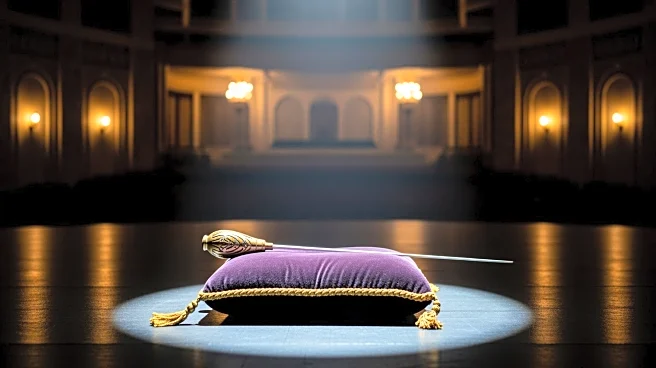What's Happening?
The Hollywood Bowl has named its stage after John Williams, marking the first time in its 103-year history that the stage has been dedicated to an artist. Williams, known for his iconic film scores, has had
a profound impact on Hollywood and the Los Angeles Philharmonic. His collaborations with filmmakers like George Lucas and Steven Spielberg have produced some of the most recognizable movie themes, including those for 'Star Wars' and 'Jurassic Park.' The dedication ceremony was attended by Williams, Spielberg, Lucas, and L.A. Phil music director Gustavo Dudamel, celebrating Williams' six-decade partnership with the orchestra.
Why It's Important?
The dedication of the Hollywood Bowl stage to John Williams underscores his significant contributions to the film industry and orchestral music. Williams' work has shaped the sound of blockbuster cinema, influencing generations of filmmakers and audiences. The recognition highlights the cultural importance of film music and its role in enhancing storytelling. It also reflects the enduring legacy of Williams' compositions, which continue to resonate with audiences worldwide. The event celebrates the intersection of music and film, acknowledging the impact of Williams' scores on both industries.
What's Next?
The dedication of the stage to John Williams may inspire future collaborations between the Hollywood Bowl and other influential artists. It sets a precedent for honoring individuals who have made significant contributions to the arts. The Los Angeles Philharmonic may continue to feature Williams' music in its performances, attracting audiences who appreciate his work. The recognition could also lead to increased interest in orchestral film music, encouraging more composers to explore this genre. As Williams' legacy is celebrated, his influence on music and film is likely to endure.
Beyond the Headlines
The dedication of the Hollywood Bowl stage to John Williams highlights the broader cultural impact of film music. Williams' scores have become synonymous with cinematic experiences, shaping how audiences perceive and engage with films. The event raises questions about the role of music in storytelling and its ability to evoke emotions and create memorable moments. It also reflects the importance of recognizing artistic achievements and preserving cultural heritage. As the film industry evolves, Williams' work serves as a reminder of the power of music to transcend boundaries and connect people.











